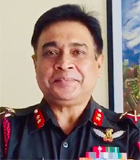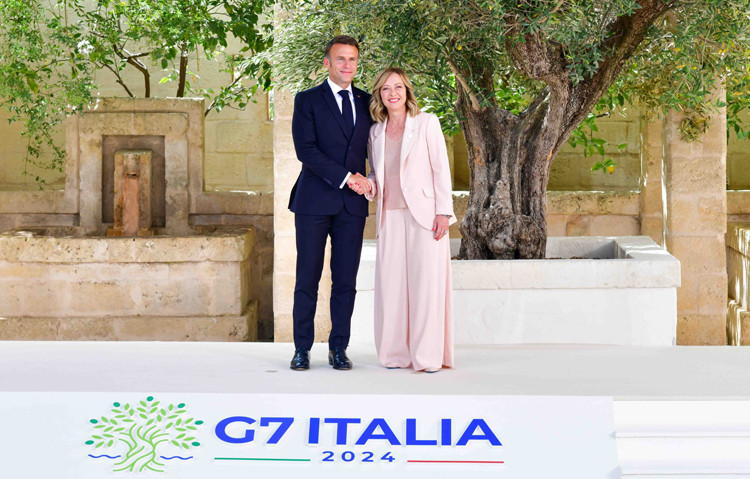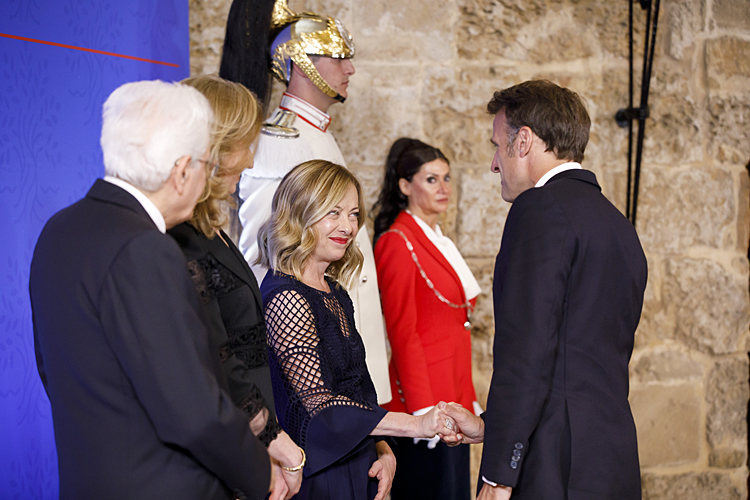INDIAN ARMED FORCES CHIEFS ON OUR RELENTLESS AND FOCUSED PUBLISHING EFFORTS

The insightful articles, inspiring narrations and analytical perspectives presented by the Editorial Team, establish an alluring connect with the reader. My compliments and best wishes to SP Guide Publications.

"Over the past 60 years, the growth of SP Guide Publications has mirrored the rising stature of Indian Navy. Its well-researched and informative magazines on Defence and Aerospace sector have served to shape an educated opinion of our military personnel, policy makers and the public alike. I wish SP's Publication team continued success, fair winds and following seas in all future endeavour!"

Since, its inception in 1964, SP Guide Publications has consistently demonstrated commitment to high-quality journalism in the aerospace and defence sectors, earning a well-deserved reputation as Asia's largest media house in this domain. I wish SP Guide Publications continued success in its pursuit of excellence.
Europe Goes Downhill
Europe grapples with mounting divisions within the European Union and NATO, while facing a barrage of challenges on multiple fronts
 |
The Author is former Chief of Staff of a frontline Corps in the North East and a former helicopter pilot. He earlier headed the China & neighbourhood desk at the Defence Intelligence Agency. He retired in July 2020 and held the appointment of Addl DG Information Systems at Army HQ. |

The cold stares of Italian Prime Minister Giorgia Meloni while receiving French President Emanuel Macron for the formal G7 dinner at Castello Federiciano in the picturesque Brindisi on June 13, 2024 went viral in global social media. The long running differences between two of the biggest economies of Europe over a range of issues including gay rights and abortion, migration and support for Ukraine as well as disputes over the role of the European Union(EU) bureaucracy were out in the open.
The G7 meet highlighted the deepening differences between Italy and France, two of Europe's largest economies, on issues like gay rights, abortion, migration, and support for Ukraine.
Meloni is a far-right Eurosceptic whose country, Italy, is at the frontline of migration crisis as thousands from North Africa take dangerous boat rides across the Mediterranean to wash up on its shores every day. Macron on the other hand is the proverbial French Gaullist who is accused of authoritarianism as he follows the founder of the Fifth Republic in concentrating power as the means to achieve long-term change. In Gaullist fashion, Macron is a Eurocentric who his making efforts to put France at the forefront of Europe, even taking extreme positions within the NATO such as readiness to despatch French troops on ground to support Ukraine’s failing war efforts.

The incident just about exemplifies the deep fissures developing within the EU as well as in NATO as Europe faces headwinds one after another on multiple fronts, especially since the global financial crisis of 2008. Broadly speaking, the 2008 crisis and managing the ensuing bankruptcy of Greece brought to the fore the ramifications of the EU being a monetary union but not a fiscal union. Many European countries had huge government debts but Greece was worst affected, with a spiralling spending deficit. For many Greeks, especially the young, the years of economic hardship were severe. People's despair turned into riots on the streets, as they suffered spending cuts, high taxes and repeatedly slashed salaries and pensions. More than 4,00,000 people emigrated from Greece. The rescue effort for Greece raised many uncomfortable questions on how far should the EU parliament and the European Central Bank go in interfering with what essentially were sovereign matters. At the height of the crisis, some worried that the Eurozone, the 19 countries that shared the euro, would collapse alongside Greece.
Europe's dependency on Russian energy, disrupted by the war in Ukraine, has led to high inflation and de-industrialization, particularly impacting Germany's economic power
The mass migration in 2015-16 opened serious debates over open borders and migration policies of individual member states like Poland and Hungary. The COVID pandemic beginning 2020 upended its booming tourism and aviation sectors. The snapping of global supply chains hugely affected European industries and impacted its thriving exports. Barely were the countries crawling out of the COVID mess towards an economic recovery when the war broke out in Ukraine in February 2022. It resulted in decoupling Europe from cheap and reliable Russian energy triggering high inflation and a cascading impact resulting in de-industrialisation, especially in its economic powerhouse Germany. The disruptions in the Red Sea route by Yemeni jihadists supporting Palestinian cause has made energy supplies from the Middle-east unreliable and costlier.


There have been a number of other parallel developments that have adversely impacted the economy, polity and life in Europe. A series of military coups in North-Western Africa that were former French colonies saw these countries ejecting French troops stationed on their soil, renegade on existing agreements (disproportionately beneficial to France) on exploitation of their gold, Uranium and other minerals and exit from the currency arrangement of Franc CFA (French Colonies in Africa) printed in France. Other former colonial powers that had immensely benefitted from such cosy arrangement exploiting the inexperienced and sometimes hugely corrupt African regimes are facing similar heat as Africa renegotiates legacy agreements following waves of coups and nationalist movements. The lucrative and cheap sources for minerals, gold and other commodities are drying out.
Falling birth rates and shrinking populations have reignited debates over gay and abortion rights, contributing to the rise of far-right leaders across Europe
Falling birth rates and shrinking population have re-ignited debates over gay and abortion rights. Across Europe the birth rate stands at 1.6, well below the replacement rate of 2.1. Europe had opened its doors to migrants in the hope of attracting cheap labour for its industry and households. But the impact is vastly different. The migrants who trudged by foot from Syria, Iraq and Afghanistan or sailed in rickety boats across the Mediterranean from North Africa in search of safety and prospects of a better life are demanding imposition of their way of life, Sharia laws, dress codes, halal compliant meat and now Caliphate. In the past decade, there have been bomb blasts, knife attacks, arson and torching of cars, riots and violent clashes in capitals across Europe in Paris, London, Berlin, Hamburg, Brussels, Stockholm and Amsterdam. The new pretext is the war in Gaza. It appearslike the European society is retreating under intimidation and fear, a reason for the far-right leaders such as Giorgia Meloni, Marine Le Pen (France), Geert Wilders (Dutch), Nigel Farage (UK),and Jimmie Akesson (Sweden) to gain traction.
The economic outlook is not very promising. Shrivelled by these adverse conditions, Eurozone GDP fell by 0.1 per centin July-September 2023, data released by Eurostat shows, worse than the stagnation which economists expected. This highlights how Europe’s economy is being held back by high interest rates, the cost of living crisis, and weaker demand from the global economy. The wider European Union grew by a paltry 0.1 per cent. Headwinds to growth remain.Overall, annual average real GDP growth is expected to be 0.9 per centin 2024, and to strengthen to 1.4 per centin 2025 and 1.6 per centin 2026. This is in sharp contrast to the overall global outlook for growth of 3.3 per centexpected in 2024 and 2025, with 3.2 per centin 2026.
The economic outlook for the Eurozone is bleak, with minimal growth projected, as Europe grapples with high interest rates, a cost of living crisis, and weakened global demand.
European Union governments are meanwhile struggling to reach consensus on bigger questions that will shape their future. These include whether to form a true banking union,whether it can sustain meaningful growth without Russian energy and if it has the means to spend more on defence as NATO doubles its direct borders with Russia. Of all issues confronting the European leadership, the most profound is demography. The approach to managing migration has come to occupy centre stage in most European capitals as the local population fear that in a few decades from now their societies would have altered beyond recognition. UK plans to fly migrants to Rwanda while Italy plans to send them to Albania. Averting a precipitous decline becomes the central challenge for Europe as it lurches towards the far-right in search for a solution.





